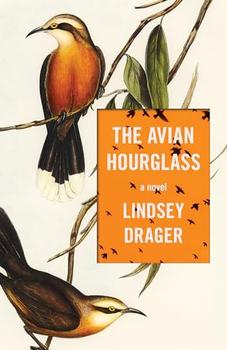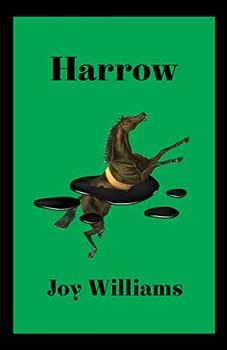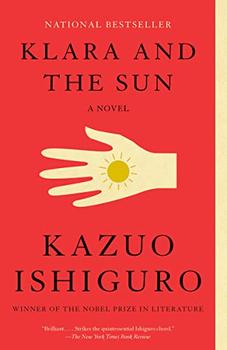Summary | Excerpt | Reviews | Beyond the book | Read-Alikes | Genres & Themes | Author Bio

It would be easy to describe The Avian Hourglass as "haunting" or even "dystopian," but neither of those words reflects the vastness of the longing that runs through it. This novel taps into a primordial solitude and its accompanying yearning. Yet the action centers around a tight-knit group of people who look out for one another.
The setting is an unknown city, seemingly in the present day but in an altered world. There are no more birds and no more stars. Someone has built gigantic replicas of birds' nests by the road, big enough for several adults to lie down inside and ponder the nests' mysterious arrival. The unnamed narrator loves birds and stars, especially the latter, and she is constantly studying for a test that will determine whether or not she can be a radio astronomer (a test she has already failed four times). She works as a bus driver on a route that is borderline defunct.
I liked the narrator's unusual family situation. Prior to the events of the novel, the narrator agreed to be a surrogate for a married couple and gave birth to triplets. When the couple died in a car crash, she opted to co-parent them alongside their maternal uncle Uri and her deceased father's twin sister, Luce. It was nice to see how well this unorthodox and platonic familial arrangement worked out. I loved Uri especially; he is a very supportive and responsible father figure even though he is deeply consumed by the play he is writing, which retells the myth of Icarus.
I also loved the eeriness of this world, which is the same as ours aside from several huge erasures. These losses parallel the sense of longing the narrator feels thinking about her father and the abrupt departure, years prior, of The Only Person She Ever Loved. One of my few complaints about the book is that the setting is already enigmatic and foreboding — adding unnamed people and murky events distracts from the more interesting mysteries. There are repeated references to things like The Crisis and The Farm, and every day there are protests where people can vote "yes" or "no" on something, though readers aren't told what. I'd have preferred for the book to dive deeply into the compelling absences and celestial mysteries, like the significance of the eclipse for which the town prepared for years.
I found myself very grateful for the narrator's reflections on loneliness and how closure is so often impossible when relationships end. She tells a story about The Only Person She Ever Loved playing her a tape of seafloor sounds and realizing how much it sounded like sounds from the sky. The speaker thinks then how the sea and sky reach out to each other despite all the distance. I felt heartbroken reading that because it was such a beautiful distillation of how the world seems to someone who's really lonely or trying to make sense of loss.
The characters are very charming, each with their fixations: Luce tells the narrator stories about the exacting methods of her grandfathers' globe-making business and obsessively shares etymologies, while Uri works in lines from his Icarus play. As much as I loved these quirks, I also wished the characters had a greater diversity of qualities, especially if it meant their conversations would sound more natural. Certain details get old early: Luce is always smoking cigarettes and rubbing her shaved head and every scene featuring The Only Person She Ever Loved mentions her biting her nails.
The Avian Hourglass is a splendid novel in which many of us will find ourselves, our obsessions, our lonelinesses, and even our sense of wonder. While I do have those minor complaints, I'm sure that in time my memories of the emotional impact will eclipse those missteps.
![]() This review
first ran in the November 20, 2024
issue of BookBrowse Recommends.
This review
first ran in the November 20, 2024
issue of BookBrowse Recommends.

If you liked The Avian Hourglass, try these:

by Joy Williams
Published 2022
In her first novel since The Quick and the Dead (a finalist for the Pulitzer Prize), the legendary writer takes us into an uncertain landscape after an environmental apocalypse, a world in which only the man-made has value, but some still wish to salvage the authentic.

by Kazuo Ishiguro
Published 2022
Klara and the Sun is a magnificent novel from the Nobel laureate Kazuo Ishiguro--author of Never Let Me Go and the Booker Prize-winning The Remains of the Day.
Your guide toexceptional books
BookBrowse seeks out and recommends the best in contemporary fiction and nonfiction—books that not only engage and entertain but also deepen our understanding of ourselves and the world around us.